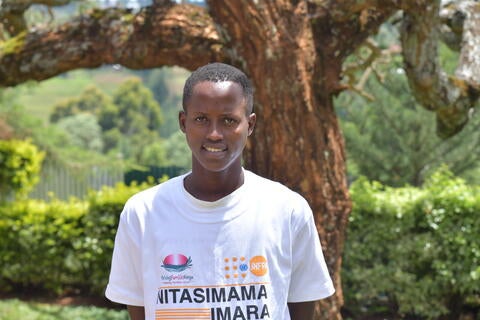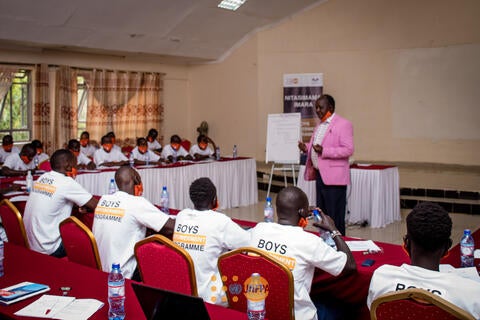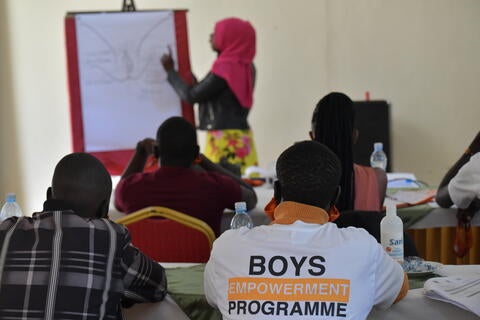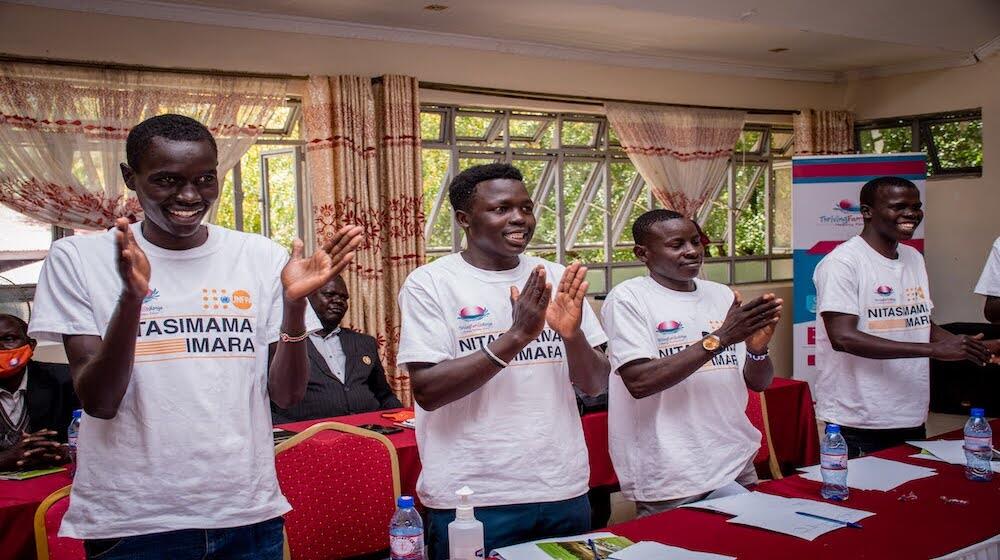At the age of 16, Kevin Ruto was devastated to learn that one of his friends had died after suffering complications related to female genital mutilation (FGM). “I remember going home and begging my mum not to allow my sisters to undergo the cut,” says Ruto. “In my village, a lot of girls drop out of school after undergoing FGM because they are now considered eligible for marriage. Teenage pregnancy is also very high and almost all girls in my neighborhood have conceived before reaching the age of 18.”
As a young man growing up in West Pokot County, Ruto underwent many challenges which left him addicted to drugs and unable to continue with his studies. “I lost my mum early in life and went through many difficult moments that left me feeling hopeless. I turned to hard drugs in my teens to help numb the feelings, which led me to a destructive path.” Now 22 years old, Ruto was lucky to find help through a youth rehabilitation group, but he acknowledges that few programmes are available to address the specific needs and vulnerabilities of young men and boys in his community.

UNFPA recently partnered with Thriving Families Kenya to launch “Nitasimama Imara” (I will stand firm), an empowerment programme that aims to support the meaningful participation of adolescent boys and young men in support of gender equality, while providing them with the necessary life skills to be well adjusted in society. The programme has been rolled out in the north rift region counties of Baringo, Elgeyo Marakwet and West Pokot which have a high prevalence of FGM, gender-based violence and child marriage.

“Engaging men and boys is a key strategy that UNFPA deploys to promote positive changes in attitudes, perceptions and behavior that will ultimately benefit the society and the well-being of women and girls,” said UNFPA Representative, Dr. Ademola Olajide. Ninety-five young men aged between 18-24 years participated in training events that included capacity building on prevention and response to gender-based violence and harmful practices such as FGM and child marriage.
The participants also took part in learning sessions led by young women who shared their experience with FGM, sexual harassment, and negative socio-cultural norms that drive discrimination against women and girls. “Interacting with the young men has really been eye-opening for me because as girls we see them often as perpetrators of practices that harm us, and rarely do we engage them as partners in gender equality,” said 20-year-old Aisha Shaba, who led a session on the impact of FGM on women’s health.

At the end of the training, the Nitasimama Imara male champions are awarded certificates after developing action plans on how they will implement gender equality initiatives in their communities. “I have learned a lot about myself and how I can contribute towards improving cultural and social norms so that women and girls are not victimized through harmful practices,” said 23-year-old Samson Lopolia.
“This programme comes at a critical time for our young men who often face challenges such as financial exclusion that leaves them vulnerable to exploitation especially as we head into the 2022 general elections,” said Kapenguria Division Deputy County Commissioner Ruth Wachera. “Cultivating champions against gender-based violence will help to promote peace within our communities which ultimately benefits the entire society,” she added.


